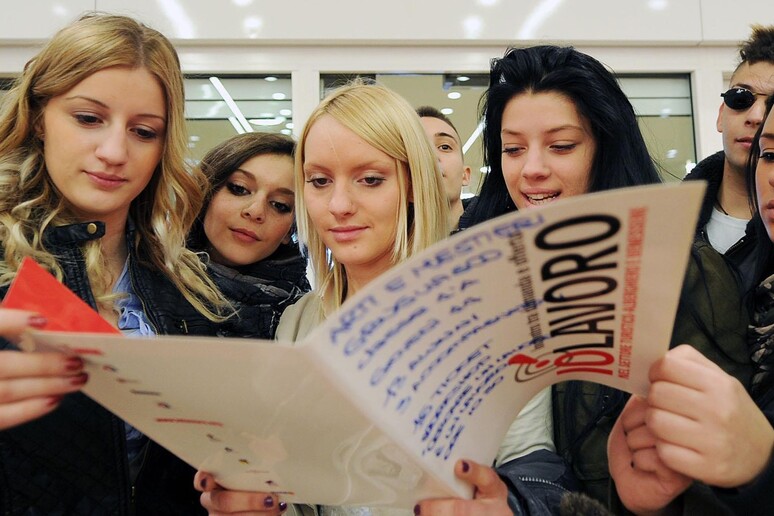Italians prepared to mark
International Women's Day Sunday amid new reports showing the
wide gap between salaries of females and males performing work
of equal value.
Traditionally, Italians mark the day with bouquets of
yellow mimosa flowers in a show of respect, but that gesture has
been offset by studies released Friday that revealed a
continuing gap in women's working conditions.
This, despite the fact that women consistent perform better
that men in university and are establishing a growing presence
in the professions.
Professional women in Italy earned 41% less on average than
their male peers in 2013, according to a study by the Italian
association for private pension funds Associazione degli Enti
Previdenziali Privati (ADEPP).
The gender pay gap was highest among lawyers and notaries,
where the women's paychecks averaged 53.8% less than their male
peers.
For healthcare professionals - doctors, dentists,
veterinarians, and nurses - women's salaries were 46% of their
male counterparts.
For female engineers, architects, industrial auditors and
other technical professionals, their gender cost women 42.1% of
their compensation.
Meanwhile, female professionals enrolled in private pension
systems has risen from 33.9% of their member total to 38.7% from
2007 to 2013.
The gender gap in pay and job security is also glaring for
recent university graduates, despite the fact that women
graduate better and in greater numbers than men, according to
2013 figures reported in the XVII Rapporto sulla condizione
occupazionale dei laureati (XVII Report on the Employment
Condition of University Graduates).
Females with university degrees in Italy earned 30% less
than their male peers one year after graduation, although women
represented 60% of the graduating class and received better
grades on average: 103.3 out of 110 points compared to 101 for
the men.
Employed male neo-graduates in Italy earned an average of
1,217 euros per month compared to the 936 euros for new female
graduates.
The gap widens as time goes on.
Five years on, male graduates see a paycheck of 1,556 euros
per month versus 1,192 euros for women - a difference that
actually increased to 30.5%.
Men also saw higher employment rates as well as more stable
working positions.
For those who completed a five-year undergraduate and
specialization programme, 52.5% of women had found work one year
after graduation compared to 60% of their male peers.
Meanwhile, 38% of the employed men landed stable jobs
versus just 31% of the women.
The difference was more acute five years after graduation,
when 78% of the women compared to 85% of men had found
employment of some kind.
At that point, just 64% of the employed women have garnered
stable jobs compared to 77% of the men - a difference of 13%.
Italy is not alone in having a gender gap when it came to
company hierarchies.
A total of 97.6% of chief executive officers in Europe are
male, while 2.4% are female.
ALL RIGHTS RESERVED © Copyright ANSA











